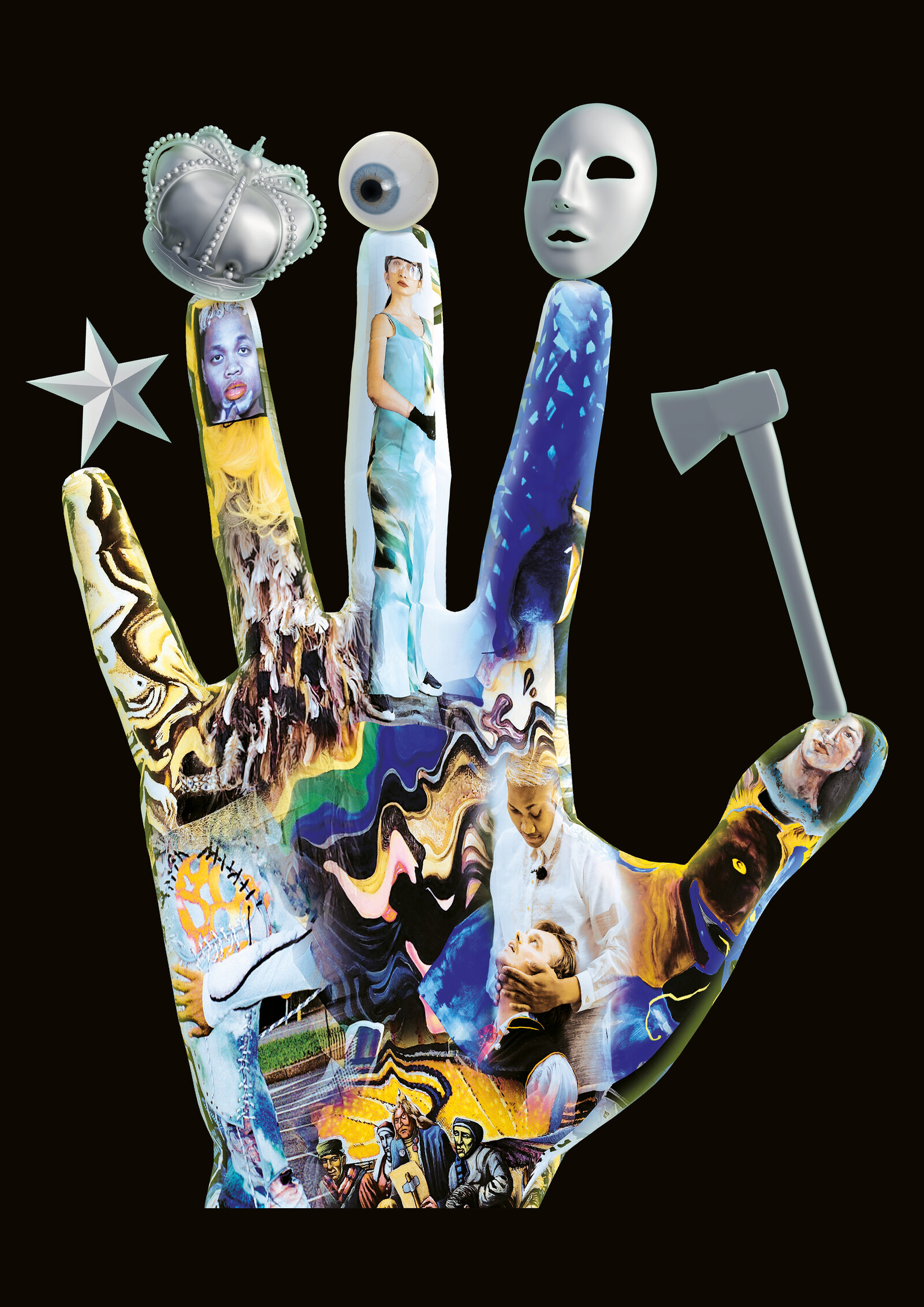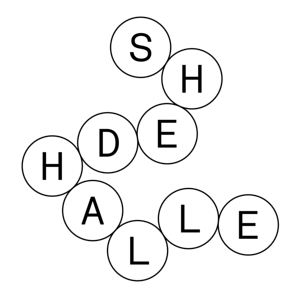Protozone9 Weak - End - Opera
December 16, 2022–January 15, 2023
Protozone9 Weak - End - Opera brings together three artists for their first major institutional collaboration in Switzerland. Selma Selman, Mikołaj Sobczak, and Nicholas Grafia, friends who come from very different backgrounds, will spend a two-week residency period at Shedhalle. Together they will develop a spatial installation with their drawings, paintings, sculptural and video works. And they will work on a new performance that will be presented on December 16 and 17, exploring the possibilities of experimental and political theatre. With references to absurdist performance and humorous play, they focus on social reality. They draw on narratives that are derived from socially stigmatized individuals and their bodily histories, but also their resilience and resistance.
The three artists have in common that they treat subversion as a means of survival, and view irritation as a means to counter alienation. Their performance will consist of narratives that are tied to each of their personal experiences, as well as to the exchange between them. The set design emerging from a collaboration between Shedhalle and the Opera House in Zurich will become part of the exhibition among the art works.
One might think that music has a liberating force, but the strict and hierarchical structure in opera feels enslaving—contrary to the supposed civilisatory claims of classical music. Therefore, the artists want their work to communicate with many different contexts and audiences. They have collected spoken words and recycled them like scrap metal, and they refer to non-Western Music, Tropical Gothic, and Slavic folklore because these are the narratives of those whose words and melodies have never been written down. The underlying question is: how to make sure that they are not forgotten?
Selma Selman currently lives and works in Amsterdam. Her work alternates between sensitive and harsh gestures, which ironically reveal discriminatory structures. The 1991-born artist evokes the motif of scrap metal collecting and recycling when she thinks about the ways in which we assign value to objects and labour. Sculptural and painterly, her pieces are taken from vehicles, and her performances expose the connectedness of all beings. What seems unchangeable, Selman re-evaluates: she points to the dream-like nature of the world we live in.
Mikołaj Sobczak combines painting, video, and performance. The 1989-born artist employs avant-garde concepts of Polish theatre to speak about queerness in a time of political polarization. When he paints, he is interested in theatricality and complex figurations, which he stages in dense tableaux. They may resemble history paintings, but Sobczak populates them with protagonists of LGBTQ activism, counterculture, and resistance movements—a vision of a transgressive utopia. In his series Witches with Broken Noses, he tells two stories. One is the narrative of a queer phobic attack in which his nose had been broken, and the other refers to the history of witch hunting. An old Polish word for witch is now a derogatory term for queer people, a connection that can likewise be found in the English term “faggot,” which has roots in the Latin word for beech—the stakes upon which heretics were burned in the Middle Ages were often erected with beech wood. Sobczak follows the connection between gay men, heresy, and witchcraft.
Nicholas Grafia, who lives and works between Düsseldorf and Paris, frequently collaborates with Sobczak. The 1990-born artist paints figuratively, but time-based media also have a place in his practice. They come together with performance and create settings that talk about social stigma, about the uncanny, queer identity, and they draw on individual and cultural memory. Grafia, who grew up between the Philippines and Europe, has a penchant for absurdist and surrealist aesthetics. In his performances, he uses non-linear dialogue and costumes to upend heteronormative Western power relations.
Curated by Phila Bergmann & Thea Reifler, curatorial assistant Vanessa Bosch.
Graphic design by Studio Yukiko.
Shedhalle is supported by Stadt Zürich Kultur and 2022/23 by Ernst und Olga Gubler-Hablützel Stiftung, Warm thank you to Opernhaus Zürich.
Opening hours
HI-Intensity: December 16, 6–10pm, and December 17, 2–10pm
with performances both days at 7pm
LO-Intensity: December 18, 2022–January 15, 2023
each Saturday, 2–8pm and Sunday, 2–6pm
Closed: December 31, 2022–January 1, 2023






